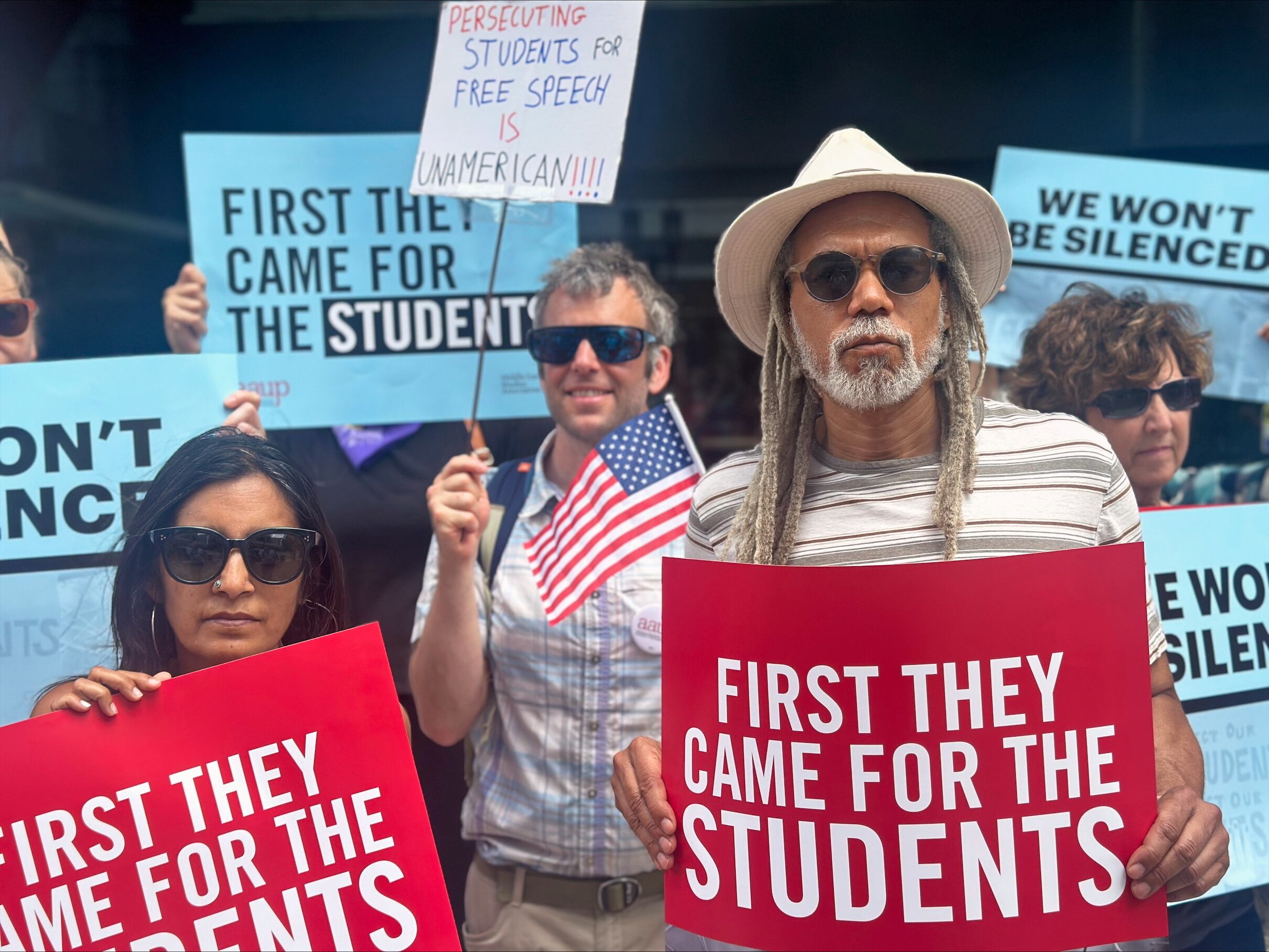BOSTON—In a lawsuit contesting the Trump administration’s campaign of detaining and expelling professors and students who took part in pro-Palestinian protests, plaintiffs contended Monday that the action constituted a concerted attempt to suppress free expression at colleges and institutions around the nation.
One of the first cases to go to trial was brought by a number of university groups against President Donald Trump and his administration. Plaintiffs ask U.S. District Judge William Young to declare that the policy is unconstitutional under the Administrative Procedure Act, which regulates how federal agencies create and publish regulations, and the First Amendment.
Ramya Krishnan, senior staff attorney at the Knight First Amendment Institute, told the court that immigrants have not faced such harsh persecution for legitimate political speech since the McCarthy era. The regulation violates the First Amendment and casts a pall of terror over campus communities. Viewpoint discrimination, retaliation, and threats from the government intended to compel silence are all prohibited by the First Amendment.
Government attorneys responded by claiming that there is no such policy and that the government is lawfully implementing immigration rules in order to safeguard national security.
Victoria Santora informed the court that there is no policy to deny visas due to protected expression. The information that will be shown throughout this trial will demonstrate that the plaintiffs are only contesting the government’s application of immigration laws.
The U.S. government has been cracking down on foreign scholars and students at a number of American universities since Trump took office by using its immigration enforcement powers.
In reference to the Palestinian militant group that struck Israel on October 7, 2023, Trump and other leaders have charged demonstrators and others with being pro-Hamas. Numerous demonstrators have claimed that they were criticizing Israel’s wartime actions.
Mahmoud Khalil, a Palestinian activist and Columbia University graduate who was freed last month after 104 days in federal immigration detention, is one of the individuals specifically named by the plaintiffs. Khalil has come to represent Trump’s crackdown on demonstrations on college campuses.
Rumeysa Ozturk, a Tufts University student who was freed from Louisiana immigration custody in May, is also mentioned in the case. She was arrested while strolling down a Boston suburb street and was held for six weeks. She claims that after co-writing an opinion piece last year criticizing the school’s response to Israel’s assault in Gaza, she was unlawfully arrested.
Additionally, the plaintiffs accused the Trump administration of starting a social media surveillance program and providing identities to institutions they wished to target. When Trump stated that Khalil’s arrest was the first of many to follow, they utilized his own words.
Megan Hyska, a Canadian green card holder and philosophy professor at Northwestern University, was the case’s first witness. She described how the attempts to deport Khalil and Ozturk caused her to drastically reduce her activism.
She had participated in numerous demonstrations against police brutality and in favor of Palestinians, supported student encampments at Northwestern, and was engaged in the Chicago branch of the Democratic Socialists of America before to Trump’s election. However, Hyska stated that she did not publish an opinion piece critical of the Trump administration, did not participate in several anti-Trump protests, and has decided not to return to Canada after Khalil and Ozturk were arrested.
After learning of a few high-profile political activist detentions, I realized that my participation in public political protest could jeopardize my visa status, Hyska said.
In an attempt to discredit her evidence, a government attorney verified that she had not received any calls from government officials requesting that she cease her activities. In order to imply that Hyska remained politically engaged, the attorney also cited two letters she had signed following the activists’ detention. Hyska responded that the letters were addressed to Northwestern administrators rather than the broader public.
Nadje Al-Ali, a German professor at Brown University with a green card, was the second witness. She described how the immigration policy hindered her ability to do her job.
Al-Ali said she canceled a scheduled study trip and a fellowship to Iraq and Lebanon after Khalil and Ozturk were arrested because she was afraid that stamps from those two nations would raise suspicions when she returned to the United States. She also declined to participate in anti-Trump demonstrations and abandoned plans to publish a feminist critique of Hamas for an essay.
Regarding the Hamas article, Al-Ali stated, “I thought it was too risky.” I believed that would raise my profile and visibility and put me at risk of being targeted and linked to pro-Palestinian rhetoric.
Al-Ali will testify in the trial on Tuesday. This week, a number of additional witnesses are anticipated to testify regarding how the immigration drive has affected their involvement.
